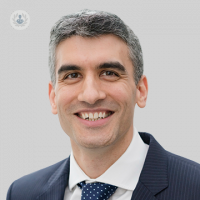Who should undergo cardiac screening?
Written by:Cardiac screening can be very beneficial for a host of different reasons, as it can rule out heart problems and reassure patients, or can detect unnoticed heart damage that may require treatment. In this article, Dr John Baksi, a highly reputable consultant cardiologist, explains what the main aim of cardiac screening is, and describes to us how cardiac screening is generally performed.

What is the aim of cardiac screening?
Cardiac screening offers the opportunity to pick up heart disease or identify risk factors for the development of heart disease before they lead to symptoms that may cause the patient to present. Importantly, this offers an opportunity to treat the conditions at the earliest opportunity or to modify risk factors that can reduce the likelihood of developing heart disease at a future point.
How is cardiac screening performed? Which tests are used?
Importantly, cardiac screening should involve a discussion with a qualified consultant cardiologist who will take note of the patient’s medical history and their family’s medical history.
Often, we will do some routine blood tests. Quite often, we will do an ECG that can show some heart abnormalities. More specifically then, we sometimes perform a cardiac MRI to look for any scar of the heart that would indicate a disease of the heart. CT coronary angiograms, as well as genetic testing may all also be required.
Which diseases of the heart can cardiac screening detect?
It can help patients understand some of their risk factors for developing heart disease, heart attack, or stroke. We look at things like your blood sugar, your cholesterol, your blood pressure, your exercise, and your general lifestyle. Cardiac screening can, for some, also be an assessment of previous unnoticed damage to the heart.
Who should undergo cardiac screening?
Cardiac screening is appropriate for anyone who is worried that they may have heart disease or any risk factors for heart disease. People with a strong family history of heart disease should seek to undergo cardiac screening at their earliest possible convenience.
Dr John Baksi is a leading London-based consultant cardiologist. Book a consultation with him today via his Top Doctors profile if you would like to undergo cardiac screening for heart disease.



